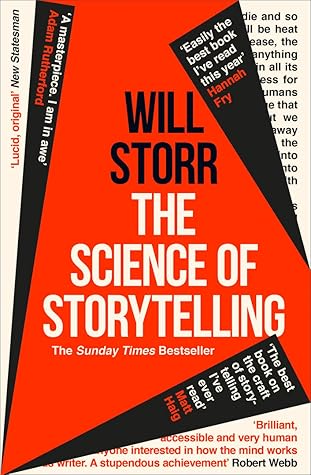More on this book
Community
Kindle Notes & Highlights
As you move through the story, remember that every dramatic scene will likely pose your character the dramatic question: who am I going to be? (Or, from the reader’s perspective: who is this person?). This is what your story’s really about. The drama is a continual test for the protagonist. Are they going to be the old, flawed version of themself? Or are they going to be someone new?
At the ignition point, something changes for a character that exposes their flaw. This creates a desire and that, in turn, creates an action. It’s that action that drives the surface plot. So we need to locate a goal for your character to throw themselves at. This is the ‘mission’ they’ll be on – it’s what will likely be described in the blurb on the back of your book or form your screenplay’s log-line.
•Something huge is at stake. What is it? Why is it so important to them?
•Work out your rough character development. Divide it into four stages, each one moving forwards towards a healed version of who they are (assuming you’re going for a happy ending. If you’re writing a tragedy, they double down on their flaw, which ultimately leads to their comeuppance). What are these different versions of them?
•Now throw one or two (temporary) reversals into the character development, as they revert back to negative behaviour and perhaps even start acting worse than they ever have before. Who or what would cause these to happen?
•Who’s standing in their way? Who’s helping them? Your protagonist will be changed by their encounters with these people – sometimes for the better, sometimes for the worse. Antagonists will often magnify the protagonist’s sacred flaw while allies will open their eyes, a little, so they can see more clearly what it is they’re getting wrong. Each encounter should somehow adjust who they are, in relation to their flaw.
•Who can show them that those damaging things they experienced when they were growing up were wrong? How do they show them?
Every truly dramatic scene will challenge your protagonist’s flaw.
The action will somehow serve to pose them that fundamental dramatic question, ‘Who am I?’ Are they going to be the old, flawed version of themselves? Or are they going to be someone new?
Are you going to give your character a happy ending? That is, will your character work out how to heal their flaw? Or will it be a tragic ending? Will it be a bittersweet mixture of the two? If it’s a happy ending, you’ll be going for a ‘God moment’ (see section 4.3) in which your protagonist finally achieves what they need in the external world by finally mastering who they are in their internal world – and your character will have complete godlike control over everything for one blissful instant.
Whichever end you choose, if it’s going to be satisfying (at least to a mainstream Western audience), it needs to deliver a firm answer to the dramatic question – we need to see, at the end of all the brilliant chaos and drama, who your protagonist really is.


